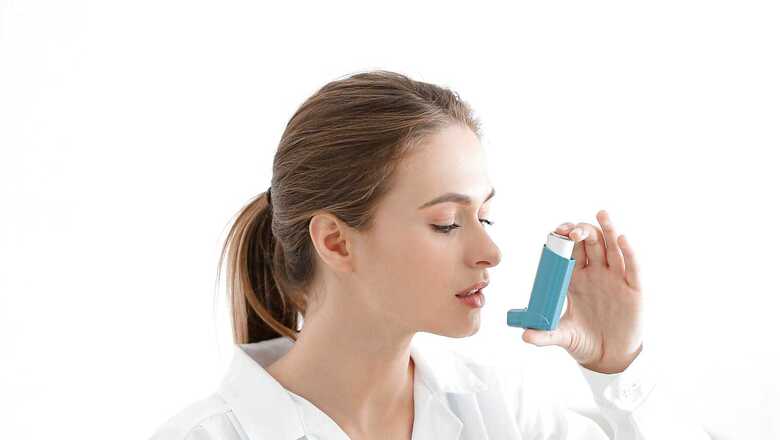
views
Diwali is known for the extravagant nature of practically everything associated with the celebration, whether it is the lights, the cuisine, or the firecrackers. However, because of the apparent and widespread usage of firecrackers, the festivities are ruined for a specific segment of society, such as those suffering from respiratory disorders. For asthmatic sufferers, the smoke that rises as a result of all the fire crackers can rapidly convert the delight into problems and confusion.
To avert the worst-case scenario, there are a few precautionary measures that may be followed to care for people suffering from asthma. Just like the festivities and preparations start a few nights before Diwali, all measures must begin well before Diwali to guarantee that no pleasure turns into a disaster.
When there is a higher concentration of particulate matter in the air, in addition to gases, the odds of COPD exacerbation rise. It not only harms your lungs, but also affects your other organs. As a result, it is essential to be aware of the health risks associated with Diwali and to take appropriate measures.
Upper Respiratory Tract Infection: The post-Diwali season normally sees an increase in the number of persons complaining of eye and throat discomfort, dry cough, and fever. While last year’s haze remained in the sky, many healthy people reported eye and chest discomfort, as well as an overall sense of suffocation.
Bronchitis: The toxic chemicals employed in crackers emit fumes and gases that can cause bronchial tube irritation, resulting in acute episodes.
COPD: When the quantity of suspended particles in the air rises during festivals such as Diwali, the risk of Chronic Obstructive Pulmonary Disease (COPD) increases. It is distinguished by a persistent cough with excessive sputum.
Precautions:
Asthma, bronchitis, and other respiratory diseases should be taken care of many days before the holiday season. It is also recommended for affected people to refrain from engaging in outdoor physical activity until the levels of fine particles have decreased. Asthmatics should use an N95 face mask, which filters out at least 95 percent of air-borne particles. A standard surgical mask is useless because contaminants can flow through it.
If one feels short of breath, it is best to get away from smoggy areas and sit in a room with the windows and doors closed and the air conditioning on. It is critical to maintain an inhaler or nebulizer at hand in order to dilate your airways. If you don’t feel better after inhaling, go to the hospital right away. Also, avoid consuming alcohol around Diwali.
Read all the Latest News , Breaking News and IPL 2022 Live Updates here.




















Comments
0 comment